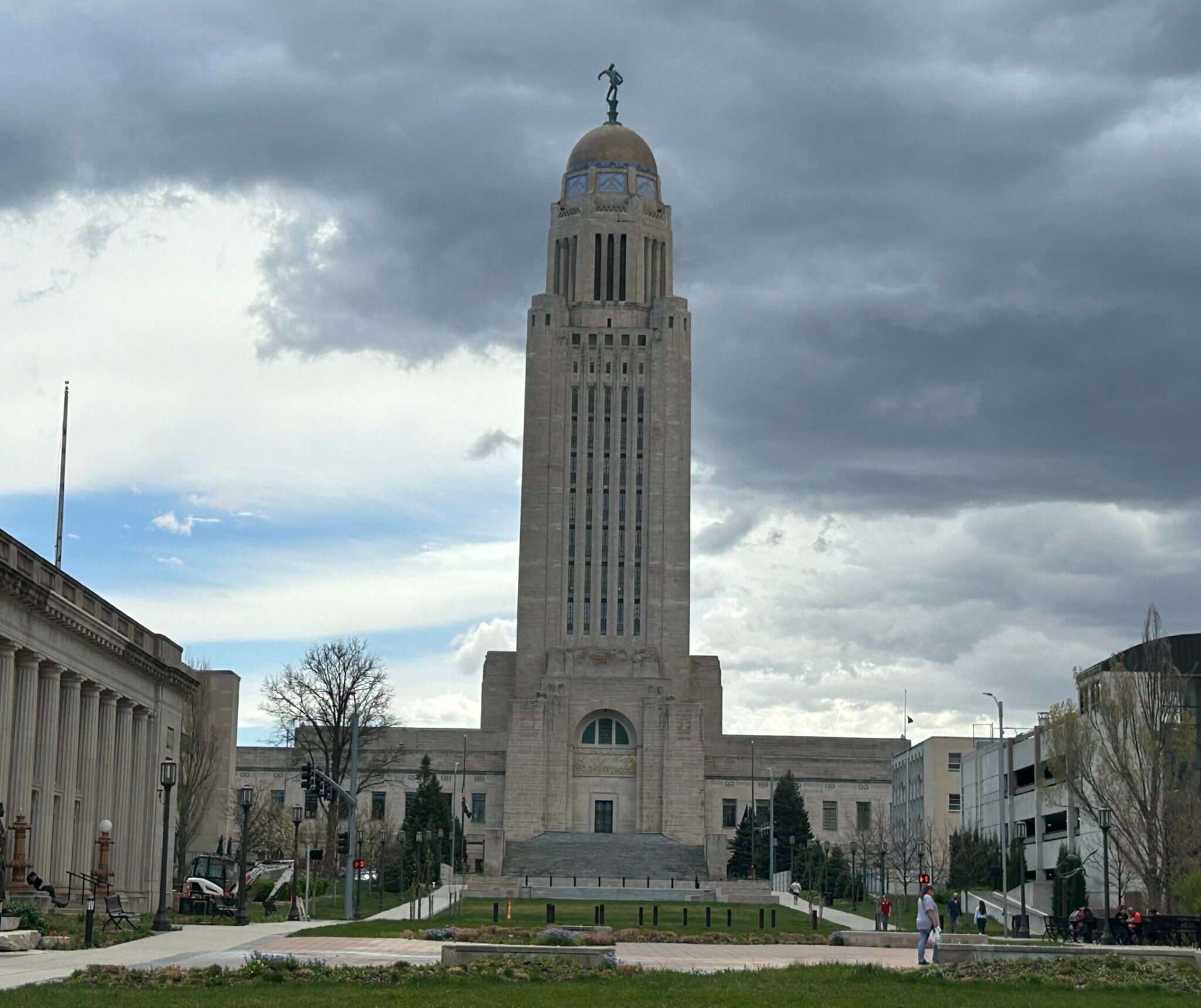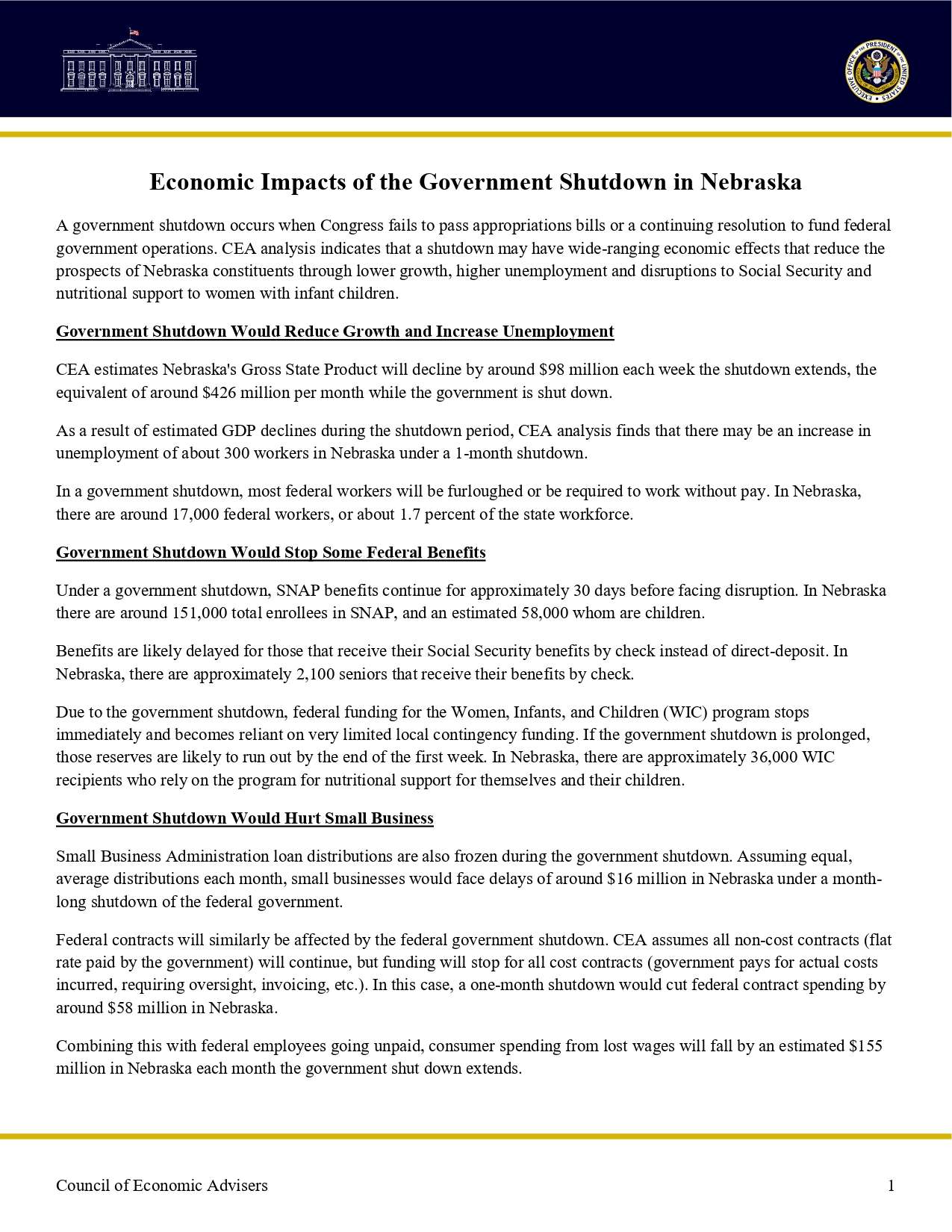
LINCOLN, Neb. — As the federal government shutdown enters its sixth day, Nebraska faces mounting financial pressures and service disruptions — with little relief in sight.
Economic Toll: Millions at Stake
According to a White House analysis, Nebraska’s gross state product could decline by about $98 million per week while the shutdown persists. Over a full month, that translates to a loss of roughly $426 million in economic output. If the shutdown stretches to a month, the report warns unemployment in Nebraska could rise by 300 people.
Federal Workforce, Benefits, and Aid in Peril
Nebraska is home to about 17,000 federal employees, representing nearly 1.7% of the state’s workforce. Many of those workers are furloughed or forced to work without pay. Key public assistance programs are also on edge:
- SNAP (food assistance) can continue for about 30 days before funds run dry.
- WIC (Women, Infants & Children nutrition aid) could be interrupted in as little as one week due to limited local reserves.
- Approximately 2,100 Nebraskans who receive Social Security via paper check may face delays in payments.

Business and Contracting Impact
Small businesses may feel the pinch as SBA loan distributions stop, potentially putting $16 million in Nebraska funding on hold over a month. Federal contracting takes a hit too — cost-reimbursable contracts (which pay actual expenses) may be suspended, pulling back $58 million in contract spending in the state. As federal wages evaporate and business deals stall, analysis suggests consumer spending in Nebraska could drop by $155 million monthly.
Voices from Nebraska
Local and national leaders are speaking out. Nebraska’s congressional delegation is under pressure to negotiate a funding resolution. Some are pointing fingers, while others warn of long-term damage if the standoff continues. Meanwhile, service providers and charitable organizations warn of rising demand if benefits halt and federal workers go unpaid.
Nebraska’s leaders are reacting sharply as the federal shutdown continues into its second week, with both parties pointing fingers over who’s to blame and what’s at stake for Nebraskans.
Sen. Pete Ricketts said the blame lies squarely with Senate Democrats.
“This is a Schumer Shutdown,” Ricketts said. “It’s the same reckless behavior we’ve seen before — putting politics ahead of the people who count on government services.” He warned that programs like WIC and Social Security assistance could face disruptions if Congress doesn’t act soon.
Sen. Deb Fischer took a more measured tone, saying she supported efforts to pass a short-term funding bill to keep the government open.
“I supported a clean continuing resolution to fund our government and keep essential services running,” Fischer said. “My offices remain open and ready to help Nebraskans navigate this.”
Rep. Adrian Smith, who represents Nebraska’s 3rd Congressional District, called the standoff “unfortunate and avoidable.”
“We can and should govern responsibly,” Smith said. “Nebraskans expect solutions — not shutdowns.”
On the other side of the aisle, Nebraska Democratic Party Chair Jane Kleeb said Republican leaders were to blame for what she described as a “manufactured crisis.”
“The GOP chose chaos,” Kleeb said. “This shutdown hurts working families, small businesses, and federal employees — all to score political points. Nebraskans deserve better.”
What Comes Next
Federal shutdowns force non-essential agencies to scale back or pause operations altogether. Essential services—like air traffic control, veterans’ health, and Social Security—are generally maintained, but many administrative and support functions must stop. Historically, once a shutdown ends, Congress retroactively pays furloughed federal workers, but that doesn’t ease the immediate cash crises families and businesses may face.
For Nebraska, the longer the shutdown drags on, the deeper the damage. State leaders, economists, and business groups alike are watching closely — and hoping for a rapid resolution.




